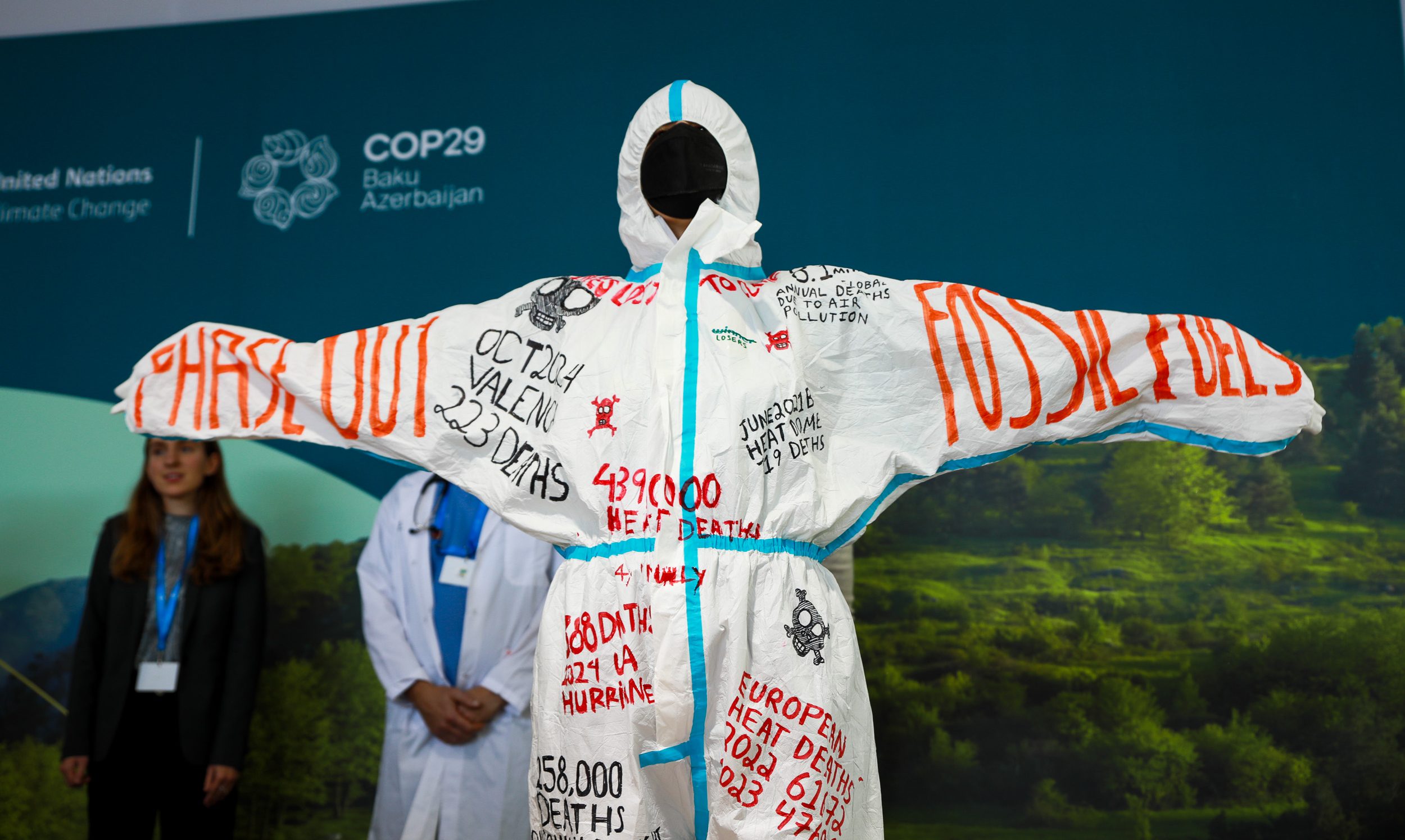From scrutinising delegates at UN climate summits to tightening rules on which countries host them and the deals they do, COPs can be cleaned up
Brice Böhmer is climate and environment lead at Transparency International.
As the dust settles after COP29, a feeling of despondency and betrayal has set in. But amid the inevitable post-mortem, the international climate community must ask itself: are we really that surprised?
This is the third year running that a repressive petrostate has hosted COP, and the second where the summit – intended to help reduce global emissions – has instead been used as a deal-brokering conference for some of the world’s biggest polluters.
The murky world of climate diplomacy
The fingerprints of the fossil fuel industry were all over Baku, chiefly those of the host country itself. An undercover Global Witness investigation caught the Azerbaijani COP29 chief executive using his role to discuss fossil fuel “investment opportunities” in the run-up to the conference. Meanwhile, Azerbaijan’s president opened the event by hailing oil and gas as a “gift from god”. His government then went on to sign new gas deals with Bulgaria and Slovakia while, elsewhere, developing nations were frantically scrambling for vital climate financing.
Overall, at least 1,773 fossil fuel lobbyists were granted access to COP29 according to Kick Big Polluters Out. In reality, however, it’s not possible to determine the true scale of the industry’s involvement. Our own analysis found that half of the registered participants (26,104) either chose not to disclose their relationship with their nominator, or hid behind unhelpfully vague categories such as ‘guest’ and ‘other’.
While it’s true that a fraught geopolitical landscape and the re-election of Donald Trump as US president meant negotiators in Baku were always facing an uphill battle, the vulnerabilities of climate diplomacy to climate corruption can no longer be ignored.
Tell us your top three climate issues for 2025! We’ll share the results in the New Year
In fact, the upsurge of climate denialism and dwindling faith in multilateralism makes rooting out undue fossil fuel influence and other conflicts of interest more important than ever.
The threat of climate corruption is an issue for at least two significant reasons. Most obviously, it undermines the integrity of the process when those who stand to gain little from a green transition – and everything to gain from the continued extraction of fossil fuels – are granted privileged access.
There is also the issue of trust. How can nations fully trust the negotiating process when it is so clearly infiltrated by private interests? Attendees need reassurances that their commitment will lead to meaningful progress, not exploited as diplomatic cover for behind-closed-doors manoeuvres and fossil fuel deal-making.
Strengthening climate multilateralism
As ever when it comes to questions of corruption, sunlight is the best disinfectant. To preserve the integrity of COP specifically – and multilateral climate action in general – we should be asking ourselves: which countries are being permitted to host COP? What suitability tests have they undergone? Who are they granting privileged access to?
Relatedly, Brazil’s President Lula recently announced that, in preparation for COP30, he is working towards a “global ethical assessment” bringing together different sectors of civil society to reflect on climate action “from the perspective of justice, equity, and solidarity”. His government has also joined forces with the UN to address disinformation campaigns that derail climate action.
Our recent report with the Anti-Corruption Data Collective, an organisation that aims to expose the threats to democracy, economic justice and the environment posed by financial secrecy and transnational corruption, offers recommendations to sustain this momentum and channel it into COP reform ahead of next year’s UN climate summit in Belém.
Big emitters accused of hiding behind climate treaties in international hearing
These include strengthening the selection process for host nations. Currently, these are chosen on a rotating basis between the five UN regional groupings. Regional group members consult with each other and make an offer to the UN climate secretariat (UNFCCC), which then adopts a decision before going on a fact-finding mission to determine that all “logistical, technical and financial elements for hosting the sessions are available” and reports back to the COP Bureau. This committee – which is elected from representatives of countries nominated by each of the UN regional groups and small island developing states – advises the COP president, acts as a focal point between governments and leads on issues of process management.
Our report proposes stricter criteria, by allowing only countries that have been vetted by the COP Bureau and whose proposal demonstrates commitment to the goals of the UN climate convention and the Paris Agreement, the purposes and principles of the Charter of the United Nations, international human rights law and managing potential conflicts of interest to be appointed hosts. The influential Club of Rome recently called for similar measures.
With Turkey, a country judged to
Read More

